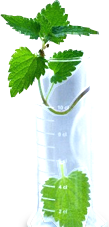



Author(s): Wazis CH *, Timothy SY, Yesufu HB, Mashi JS, Kida MY
Viscum album L is widely distributed in tropical and subtropical Africa, Asia and Europe. They are used in the treatment of nervous complaints, bleeding, tumours, diabetes mellitus and arthritis. The study was conducted to evaluate the antinociceptive activitiy of the ethanol whole plant extract. The Preliminary phytochemical screening and acute toxicity study on the plant extract was carried out based on the outlined standard procedures, whereas the antinociceptive activity was evaluated using acetic acid-induced writhing and tail immersion test. The Preliminary phytochemical screening of the extract revealed the presence of flavonoids, alkaloids, glycosides, tannins, saponins, steriods and triterpenes. The intraperitoneal and oral LD50 was found to be greater than 2000 and 5000 mg/kg respectively. The ethanol extract of the plant produced significant (p<0.05) and dosedependent antinociceptive activity in both methods used. The peak antinociceptive effect occurred at 1000 mg/kg with a percentage inhibition of 88.3% in acetic acid-induced writhing test. Similarly 1000 mg/kg produced maximum increase in pain threshold by 1.91 fold in the tail immersion test at 90 minutes. The results demonstrate that the ethanol whole plant extract of Viscum album was found to be relatively less-toxic and contain some pharmacologically active constituents which might be responsible for the observed antinociceptive activity of the plant extract. These amply justify the traditional use of this plant as an analgesic.